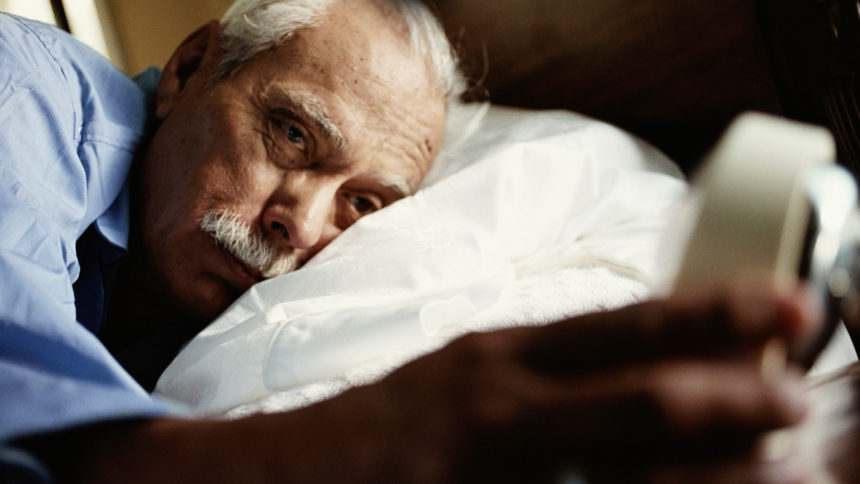
To address residents’ sleep problems, consider alternatives before ordering new medications, says an expert from the University of Southern California.
Sleep medications can have unwanted side effects in older adults, and some are linked with heightened dementia risk. What’s more, symptoms of poor sleep may be caused by another underlying problem. In other cases, staff expectations — not the residents’ schedule — may require adjustments, writes Freddi Segal-Gidan, PA, Ph.D., in an editorial published in the Annals of Long-Term Care.
The following considerations should be addressed before a clinician reaches for the prescription pad, according to Segal-Gidan:
Is there an illness presenting as a sleep disturbance?
Are vital signs normal? Have there been any recent changes in appetite, activity, or bladder/ bowel function? Is there a new roommate, or has there been a change in living situation?
Clearly establish the symptoms
If a patient with dementia is “awake all night,” what does this mean? Are they truly awake from 11:00 p.m. to 5:00 a.m., or are they waking up frequently, intermittently, through the night? In a facility with 24-hour staff, “having the staff adjust to the patient, rather than sedating the patient, is preferable,” writes Segal-Gidan. If possible, “create a space where residents can sit with a staff person at night.”
Review medications
Medications known to affect sleep patterns include: Donepezil, beta- and alpha-blockers, antidepressants, nonsteroidal anti-inflammatory medications and opioid analgesics..
Encourage simple sleep hygiene
Keep residents awake and engaged in activities that discourage daytime sleep. Watching television can contribute to daytime sleeping. Regular exercise, including walking and chair exercise participation, can improve sleep. A regular bedtime routine, perhaps with a warm bath and/or massage with lotion and soft music in a dark room, can help.
Keep sleep expectations realistic
Fractured sleep and frequent awakenings are more common with older age. “For some older adults, six hours of sleep may be sufficient,” writes Segal-Gidan. In other cases, “adjusting to the sleep pattern and needs of the resident may be the best approach.”
The full editorial can be found here.




